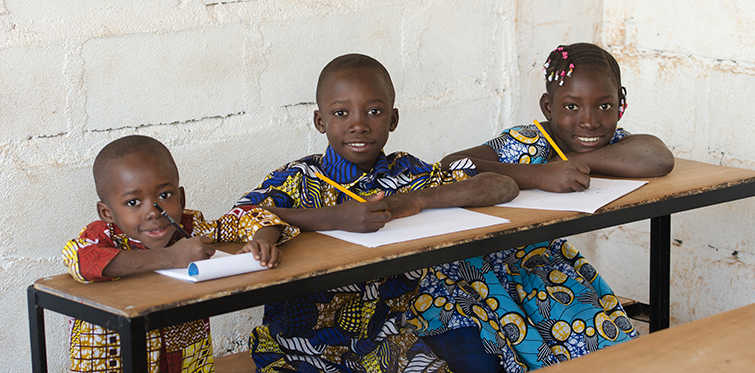Resilient Education for Crisis-Affected Children

Between 2018 and 2020—before the onset of the COVID-19 pandemic—Burkina Faso experienced multiple shocks: flooding, food shortages, a large influx of internally displaced persons, an influx of migrants from Mali and Niger, and violent conflict. These circumstances led to prolonged school absences even after the pandemic ebbed, increasing the risk that youth not attending school could be recruited into violent extremist organizations.
The USAID Resilient Education for Crisis-Affected Children activity, led by Save the Children, aims to increase school retention and completion, and improve the learning and well-being of more than 55,000 children in 250 primary schools in the Nord and Centre-Nord regions of Burkina Faso through an approach that prioritizes local ownership, system strengthening, and data-driven adaptation.
AIR’s technical assistance role as a sub-partner to Save the Children focuses on support for reading, math, and social-emotional learning assessment at baseline, midline, and endline, setting benchmarks in reading and math at grades 2 and 5, and providing technical advice to the participatory measurement of safe learning environments.
